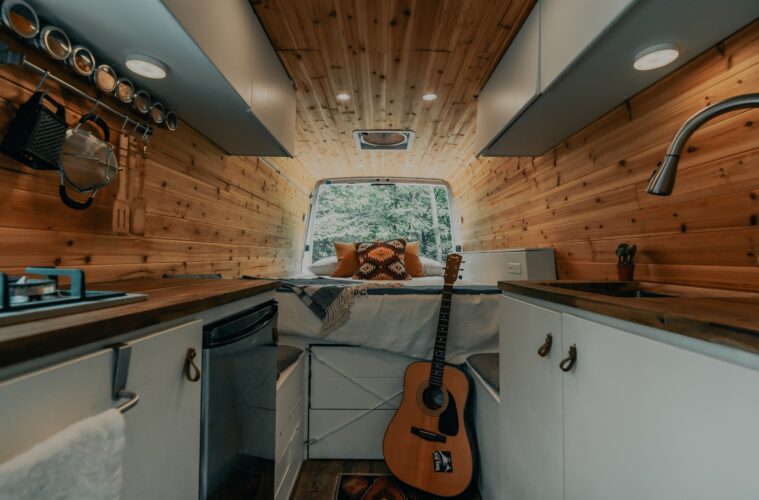Van life offers an exciting opportunity to explore the world while enjoying the freedom of the open road. However, to make your van life adventure a sustainable and fulfilling journey, it’s crucial to have a well-thought-out budget. Proper financial planning will not only allow you to embrace the nomadic lifestyle with confidence but also help you avoid unnecessary stress along the way. In this guide, we’ll walk you through the essential steps to budget for your van life adventure.
Start with the Basics:
Begin by calculating your fixed expenses, even before you hit the road. These may include vehicle-related costs like purchasing or converting a van, registration, and insurance. Consider other monthly bills such as mobile phone, health insurance, and any outstanding debts. These will be the foundation of your budget.
Getting the right coverage:
One crucial aspect to consider is choosing the right van insurance for UK drivers. Van insurance is not just about complying with the law; it’s about protecting yourself and your home on wheels. In the UK, having the right van insurance is a legal requirement, and it’s vital for your peace of mind.
Research different insurance providers and policies to find the coverage that suits your van life needs. Some factors to consider when choosing van insurance for UK drivers include:
- Coverage Types: Look into comprehensive, third-party, or third-party, fire, and theft coverage options. Comprehensive coverage offers the most protection, but it can be more expensive.
- Usage: Be accurate about how you plan to use your van. If it’s for personal use only, make sure your policy reflects that. If you’re using your van for business purposes, you’ll need commercial van insurance.
- Named Drivers: Consider who will be driving the van. Some policies only cover named drivers, so make sure all potential drivers are included.
- Excess: Understand the excess (the amount you’ll have to pay towards a claim) associated with your policy. A higher excess might result in lower premiums, but be sure you can comfortably cover it in case of a claim.
- No Claims Bonus: Check if you can transfer a no claims bonus from your previous insurance policy. It can lead to reduced premiums.
- Additional Cover: Depending on your needs, you might want to add extra coverage options like breakdown assistance, legal expenses, or cover for personal belongings in the van.
Determine Your Monthly Income:
If you’re a digital nomad, your income source might be location-independent, which is ideal for van life. If not, explore ways to earn money on the road. Whether you’re working remotely, freelancing, or picking up temporary jobs, understanding your monthly income is crucial for budgeting.
Track Your Variable Expenses:
Variable expenses encompass everything from fuel and maintenance to food, entertainment, and campground fees. To get an accurate estimate of these costs, consider tracking your spending for a few months before you start van life. This will help you identify patterns and determine a realistic monthly budget.
Set Priorities:
While living the van life, you’ll quickly realise that you can’t have it all. Make a list of your priorities and allocate your budget accordingly. Maybe you want to prioritise exploring new destinations, and you’re willing to cut back on eating out. It’s all about balance and aligning your spending with your values.
Keep an Emergency Fund:
Life on the road can be unpredictable, and emergencies can happen. It’s essential to build an emergency fund to cover unexpected expenses, such as vehicle repairs or medical bills. Experts recommend saving at least three to six months’ worth of living expenses.
Keep a Travel Journal:
Record your daily expenses in a travel journal or use budgeting apps to help you stay on track. This will also serve as a valuable reference to track your spending patterns and adjust your budget as needed.
Look for Ways to Save:
Living in a van can be surprisingly cost-effective, but there are always opportunities to save money. Consider free camping options, cooking your meals, and taking advantage of discounts and loyalty programs.
Adjust Your Budget as You Go:
Van life is a dynamic experience, and your budget should be flexible to adapt to changing circumstances. As you gain experience, you’ll learn to make more accurate predictions about your expenses. Periodically review and adjust your budget to stay on course.
Plan for the Long Term:
Your van life adventure is not just a short-term vacation. To make it sustainable over the long term, think about your future financial goals. This may involve saving for retirement or investments, even while living on the road.

